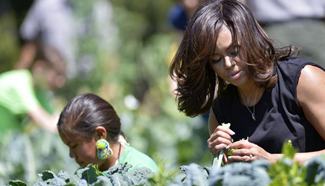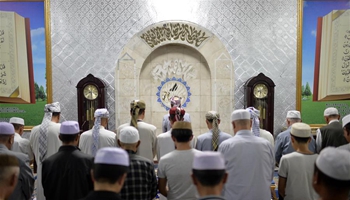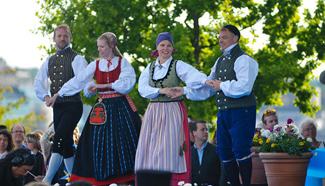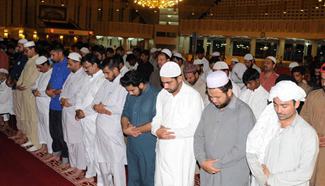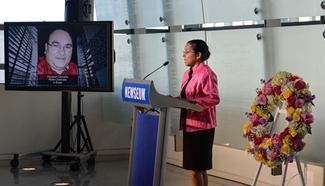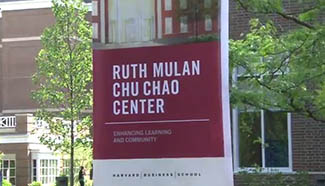URUMQI, June 6 (Xinhua) -- Muslims around China have finished their first day of Ramadan after a long day without food and drink on Monday.
For many in Kashgar, Xinjiang Uygur Autonomous Region, it is customary after a day's fasting to have a glass of "doc," a milk drink mixed with yogurt, honey and ice.
"Nothing is better than doc for breaking fast. Both thirst and fatigue disappear after a glass," said Abdokrim Ismail, a resident of Kashgar's old town.
This year's Ramadan, which lasts from Monday to July 6, coincides with the hottest part of the year in Kashgar. Going without drinking in temperatures consistently over 30 degrees Celsius (86 degrees Fahrenheit) is quite a challenge.
"Ramadan is an occasion for us to experience starvation and learn endurance. No matter how hard it is, I will keep fasting for the holy month," Abdokrim said.
Muslims are not allowed to eat or drink between sunrise and dusk during the Islamic holy month of fasting and spiritual reflection. The practice is widely observed by ethnic minorities in China, including Uygur, Hui, Kazakh, Uzbek, Tajik and Kyrgyz.
But for Mayis Hagei, a Muslim hotcake cook from Linxia Hui Autonomous Prefecture in Gansu Province, work continues.
Mayis Hagei, his wife and daughter got up at about 4 a.m. as usual. After morning prayer, the family began a busy working day.
"Ramadan is good for us Muslims to purify the heart, strengthen the mind and contemplate over doctrine," he said. "But non-Muslim residents of the neighborhood also need our cakes and service."
"I have sworn to stick it out until the Eid al-Fitr (festival of breaking of the fast)," he added.
While Mayis Hagei was making cakes for his customers, Eprhan Abdokadhre, a housewife in Kashgar, was also busy preparing food before the sunrise: mutton, lamb pilaf, fruits, desserts, bread, milk, tea and honey -- plentiful enough for the whole family to endure the day.
"We believe in a light supper and a heavy breakfast," Eprhan said.
After grabbing a bite in the dusk, the men in her home went to a nearby mosque for the fourth prayer of the day, and women performed the ritual at home.
According to Hamit Aisha, assistant general manager of Xinjiang Arman halal food company, sales usually double during Ramadan, as demand for finished and semi-finished food soars.
Hermit Parati runs a carpet factory in Artux City of Xinjiang's Kizilsu Kirgiz Autonomous Prefecture. He is thinking of shortening working hours by three to four hours per day for Muslim employees.
On Monday, about 20,000 people visited Dongguan Mosque in Xining, capital of Qinghai Province, almost double the usual number. Qinghai is home to more than a million Muslims, or about one fifth of the province's total population.
Wang Shaofeng, an imam at the mosque, leads tours for visitors. "Not drinking water for the whole day is quite a challenge for people like me, who talk a lot, but many people are quite considerate, and they did not ask many questions today," he said.
After sunset, young girls distributed dates at the gate of the mosque and some believers brought milk tea and melons to share.
Ma Jian, a middle-aged Muslim, left the mosque after he finished his prayer sessions for the day. "My family have prepared noodles and desserts for the night. After a day of fasting, the delicacies are a great joy," he said.
China has about 20 million Muslims living in almost all provinces.

